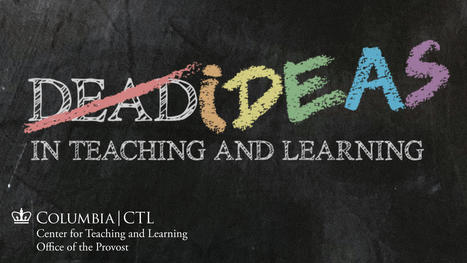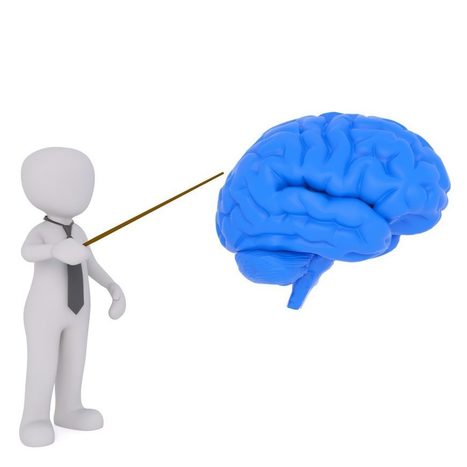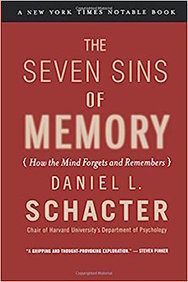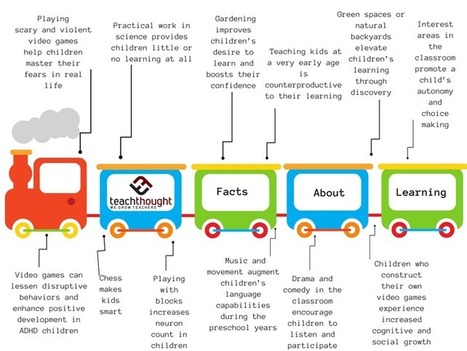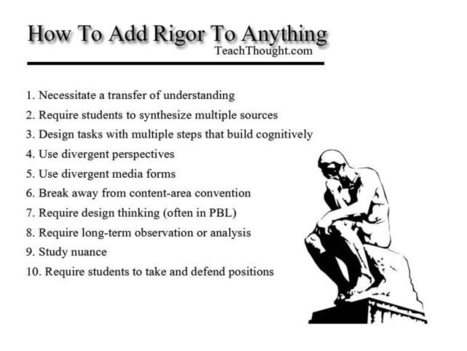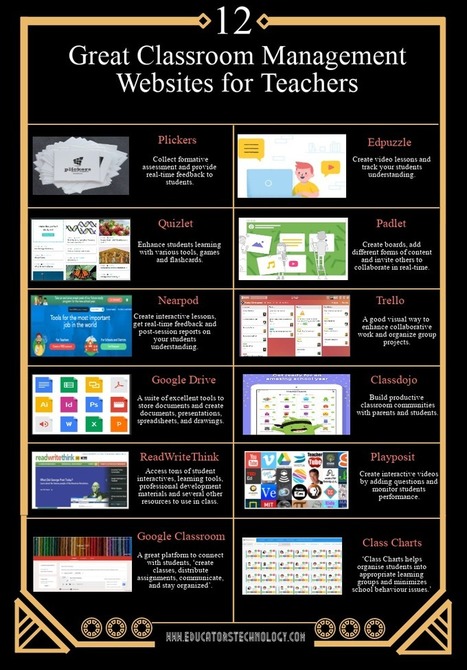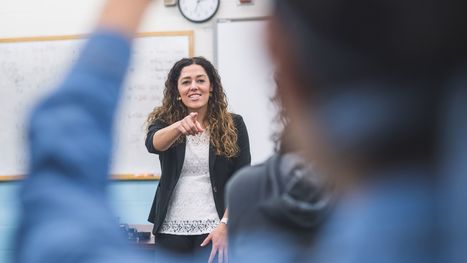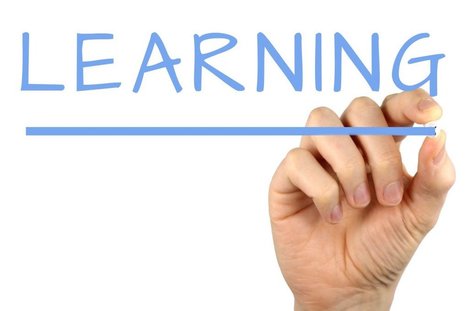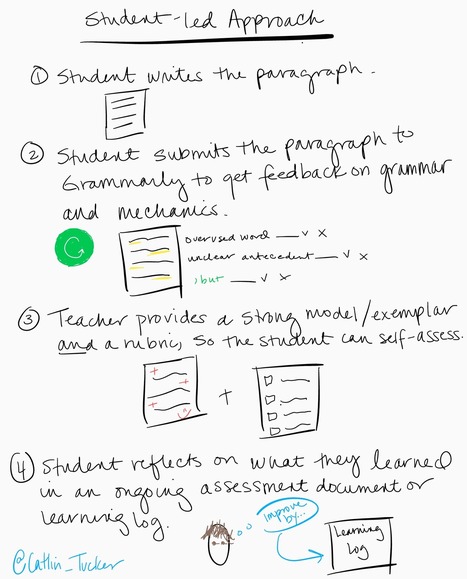 Your new post is loading...
 Your new post is loading...
Dead Ideas in Teaching and Learning is a podcast from the Columbia University Center for Teaching and Learning. Our mission is to encourage instructors, students, and leaders in higher education to reflect on what they believe about teaching and learning. In each episode, guests are invited to share their discoveries of “dead ideas”—ideas that are not true but that are often widely believed and embedded in the pedagogical choices we make.
Via Peter Mellow
Multimodal learning is teaching a concept through visual, auditory, reading, writing, and kinaesthetic methods. It is meant to improve the quality of teaching by matching content delivery with the best mode of learning from the student.
Via Elizabeth E Charles
Most people associate learning with formal education at school, college, university etc. We are all told, from an early age, that we should ‘get a good education’. Generally speaking it is true that a formal education and the resulting qualifications are important. Education may maximise our potential to find better, more satisfying jobs, earn more and, perhaps, become more successful in our chosen career.
Via Elizabeth E Charles
American teacher Timothy Walker learned more effective ways to teach when he moved to Finland and pulled back from cramming too much into one day.
Via John Evans
When my students forget from day to day (short-term memory) and from year to year (long-term memory) can I just blame their distracted brains? Or is there a teaching issue here? The fact is, moving learning from short-term to long-term memory is not a single step.
For most information to be remembered, seven separate steps are required. Most are steps that teachers have been trained to use, but there are a few things we miss, according to the experts.
Via John Evans
Have you checked your assumptions about student learning at the door?
People in general, hold onto beliefs that are shaped by early experiences, the media, and faulty influences. The following list is a compilation of research that may surprise you. Video games, e-books, playtime, and music are all a part of an educator’s repertoire.
Read on, and be prepared to put your traditional beliefs aside as science points to innovative methods that indicate future success.
Via John Evans
Rigor is a fundamental piece of any learning experience. It is also among the most troublesome due to its subjectivity. What does it mean? What are its characteristics? Rigorous for whom? And more importantly, how can you use to promote understanding?
Via paul rayner
Looking for some educational websites to help you with the management of your class instruction? The list below has you covered. These are some some popular web tools we have reviewed in multiple instances in the past which you can use to perform a wide variety of tasks. These include: creating interactive video lessons, collect formative assessment and provide real-time feedback to students, enhance students learning through the use of digital games and flashcards, create online classes and share with students assignments and learning resources, organize students into appropriate learning groups and many more. Links to these websites are under the visual.
Via John Evans, Carlos Fosca
A blog about school libraries and the role of the librarian in teaching and learning. Why information literacy is important.
|
As neuroscience brings greater understanding of the human brain, experts are applying those findings in the classroom to improve how we teach and learn.
Via Peter Mellow, juandoming
Finding it difficult to learn math? If yes, then here are the best ever tips on how to learn math from basic to the advanced level. Follow all these tips to st…
Research on the forgetting curve has revealed some shocking statistics. Within one hour, people will have forgotten an average of 50 % of new information. Within 24 hours, they have forgotten an average of 70 % of the new information, and within a week, they will have forgotten 90 % of it. Of course, it’s not the same for everybody, but it’s still pretty disconcerting. And this fact is the problem with corporate training – most of it goes to waste. Most of what your employees have learned will be forgotten unless you employ what is known as “spaced repetition.”
Via Elizabeth E Charles
The Learning and Teaching Repository contains a collection of higher education learning and teaching materials flowing from projects funded by the Australian Government from 1994-2018.
Via Peter Mellow
High school students ask this question partly to challenge the teacher’s authority, but they may really want to know the answer.
Via John Evans
When the National Academies issued its first expanded "How People Learn" report, the contents struck a nerve, providing a readable explanation of the various research findings on the science of learning along with guidance on how to turn those insights into instructional practice in the classroom. A new version of that report offers an updated view on the topic and pushes beyond K-12.
Via Peter Mellow
Many people mistakenly believe that the ability to learn is a matter of intelligence. For them, learning is an immutable trait like eye color, simply luck of the genetic draw. People are born learners, or they’re not, the thinking goes. So why bother getting better at it?
And that’s why many people tend to approach the topic of learning without much focus. They don’t think much about how they will develop an area of mastery. They use phrases like “practice makes perfect” without really considering the learning strategy at play. It’s a remarkably ill-defined expression, after all. Does practice mean repeating the same skill over and over again? Does practice require feedback? Should practice be hard? Or should it be fun?
Via Elizabeth E Charles
It’s kind of amazing that you clicked on an article with “compliance training” in the headline, such is the revulsion with which that experience is typically–and often deservedly–greeted. But it’s a good thing you did. The policies covered in most compliance-training programs are extremely important for keeping the organization from violating laws and regulations, not to mention preserving a safe, inclusive work culture. So it’s all the bigger shame that the way employees tend to be taught about those policies is frequently so tedious and rarely leads the desired outcomes. Here’s why–and what it takes to rethink a more effective training experience.
Via The Learning Factor
A major barrier to innovation in the classroom is teacher exhaustion. I regularly work with teachers who like the idea of trying new teaching strategies, blended learning models, and technology tools, but they don’t have the time or energy to experiment.
When I work with teachers, my goal is to get them to shift their mindsets. Instead of asking themselves, “How can I?” I want them to pause and rephrase the question, “How can students?” This shift in teacher mindset seems simple, yet it goes against most teachers’ instincts. We place a lot of pressure on ourselves to do it all. Unfortunately, that mentality robs students of opportunities to learn.
Via John Evans
Science is constantly changing, and although we’ve come a long way since the days when it was widely believed that older people couldn’t learn new things, a number of learning myths have stood the test of time despite having no grounding in scientific research.
Via Elizabeth E Charles
Here are at least 14 trusty online tools of all kinds to give your students the edge as they work on improving writing skills.
Via Ana Cristina Pratas, Carlos Fosca
|



 Your new post is loading...
Your new post is loading...

